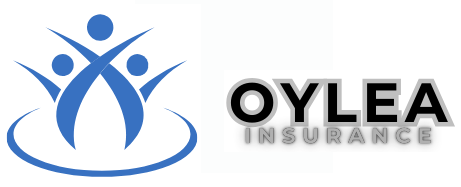
Unlock Hidden Tax Deductions That Could Save You Thousands as a Self-Employed Powerhouse
Discovering Untapped Savings That Could Transform Your Finances
As a self-employed professional, your journey is filled with opportunities to maximize your income and minimize your tax burden. Many entrepreneurs overlook crucial deductions simply because they are unaware of their eligibility. Unlocking these hidden tax deductions can lead to substantial savings, empowering you to reinvest in your business or enjoy financial peace of mind. The key lies in understanding the broad spectrum of expenses that qualify and meticulously tracking every eligible expenditure. This proactive approach can turn ordinary expenses into extraordinary tax benefits, ensuring you keep more of your hard-earned money.
Maximize Your Deductions by Navigating Complex Tax Codes
Tax laws for self-employed individuals are intricate but incredibly rewarding if navigated correctly. From home office deductions to equipment expenses, the spectrum of potential savings is vast. For instance, if you work from a dedicated space within your home, you may be eligible to deduct a portion of your rent, utilities, and even internet costs. Additionally, expenses related to professional development, travel, and marketing are often overlooked. By maintaining thorough records and understanding the nuances of deductible expenses, you can significantly reduce your taxable income. Expert advice or utilizing reputable tax software designed for self-employed individuals can make this process seamless and highly effective.
In the end, becoming well-versed with these deductions isn’t just about saving money—it’s about gaining control over your financial future. Every dollar saved through legitimate deductions is a dollar that can be reinvested into growing your business or securing your personal financial stability. Don’t leave money on the table—be proactive, stay informed, and unlock the full potential of your self-employment tax benefits.
Maximize Your Profits: Strategic Expense Hacks for the Self-Employed Entrepreneur
In the fast-paced world of self-employment, every dollar counts. While many entrepreneurs focus on increasing revenue, an often-overlooked strategy is optimizing expense management to legally reduce taxable income. Implementing strategic expense hacks not only conserves cash but also amplifies your profit margins, giving you a competitive edge in your industry.
Particularly for self-employed professionals, understanding the subtle nuances of deductible expenses can transform ordinary costs into powerful financial tools. The key is to adopt a disciplined approach—tracking expenses meticulously, categorizing them accurately, and aligning each expenditure with IRS guidelines. This proactive stance ensures you’re not leaving money on the table while avoiding pitfalls of non-compliance. It’s about working smarter, not just harder, by leveraging every opportunity to enhance your bottom line.
Leveraging Business-Related Personal Expenses
Many entrepreneurs are surprised to learn that certain personal expenses, when directly tied to their business activities, can be deducted. For example, a portion of your mobile phone bill or vehicle expenses used exclusively for business purposes can significantly cut your taxable income. The trick lies in maintaining detailed records—such as logs of business miles or separate billing statements—to substantiate these claims during audits. By carefully allocating personal and business use, you optimize your deductions without risking penalties.
Smart Investment in Business Growth
Investments that foster business growth are not merely expenses—they are strategic moves that can be deducted to reduce taxable income while positioning your enterprise for expansion. Upgrading your technology, enrolling in specialized training, or even marketing campaigns aimed at expanding your client base can all serve as legitimate deductions. The secret is to view these expenses as investments rather than costs, ensuring they are justifiable as necessary business activities. Proper planning and documentation turn these investments into powerful tools for maximizing profitability and securing long-term success.
Transform Your Tax Strategy: Essential Deductions Every Self-Employed Professional Must Know
Unlocking the Power of Strategic Deduction Planning
Many self-employed professionals miss out on significant savings simply because they haven’t adopted a comprehensive approach to their tax planning. Transforming your tax strategy begins with understanding that every legitimate expense can be an opportunity to reduce taxable income. By meticulously reviewing your financial activities throughout the year, you can identify expenses that align with IRS guidelines but are often overlooked. This proactive mindset makes it possible to craft a tailored deduction plan that maximizes your savings, transforming ordinary expenses into powerful tools for financial efficiency. The goal is to not only comply with tax laws but to leverage them creatively—turning everyday costs into strategic advantages that bolster your cash flow and profitability.
Dissecting Your Business and Personal Expenses for Maximum Benefit
The distinction between personal and business expenses often blurs for self-employed entrepreneurs, yet clarity here can unlock hidden deductions. For instance, a home office setup, if carefully documented, can allow you to deduct a portion of rent, utilities, and even maintenance costs. Similarly, expenses related to your vehicle become more advantageous when you track mileage rigorously, distinguishing between personal and business use. Consider also professional subscriptions, industry-specific training, and even certain insurance premiums—these can all be justified as necessary for your professional growth. By dissecting your expenses with precision, you turn what might seem like personal costs into legitimate deductions, drastically reducing your tax liability and boosting your bottom line.
In addition, strategic planning around timing and categorization of expenses can make a tangible difference. For example, scheduling major equipment purchases or professional development courses within the fiscal year can optimize their deductibility. The key is to treat your financial records as a dynamic tool—regularly updating, categorizing, and aligning your expenses with your business goals. This disciplined approach ensures you’re not leaving money on the table and positions you as a savvy, strategic self-employed professional capable of turning every dollar into an investment in your success.
